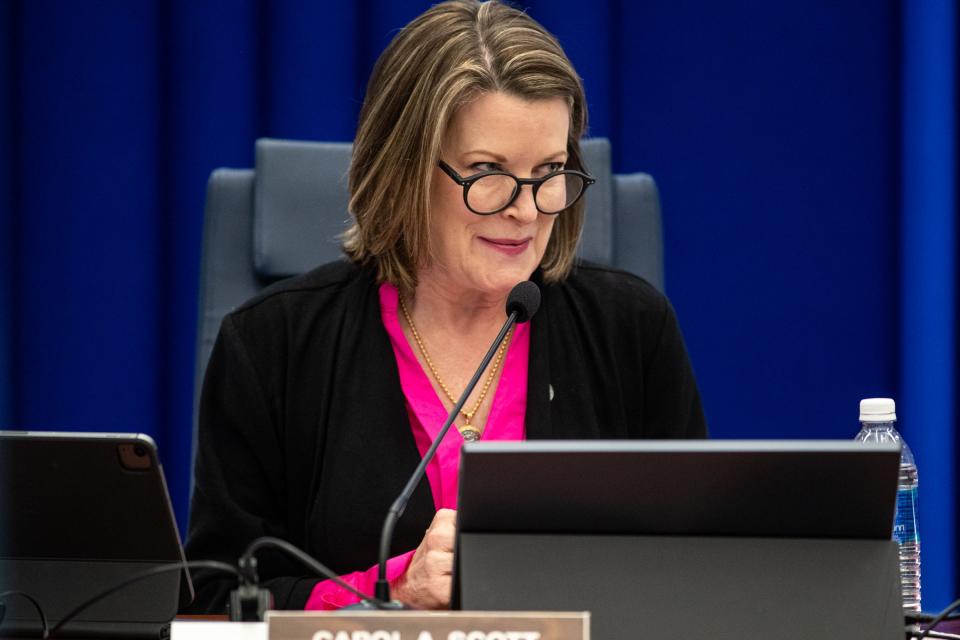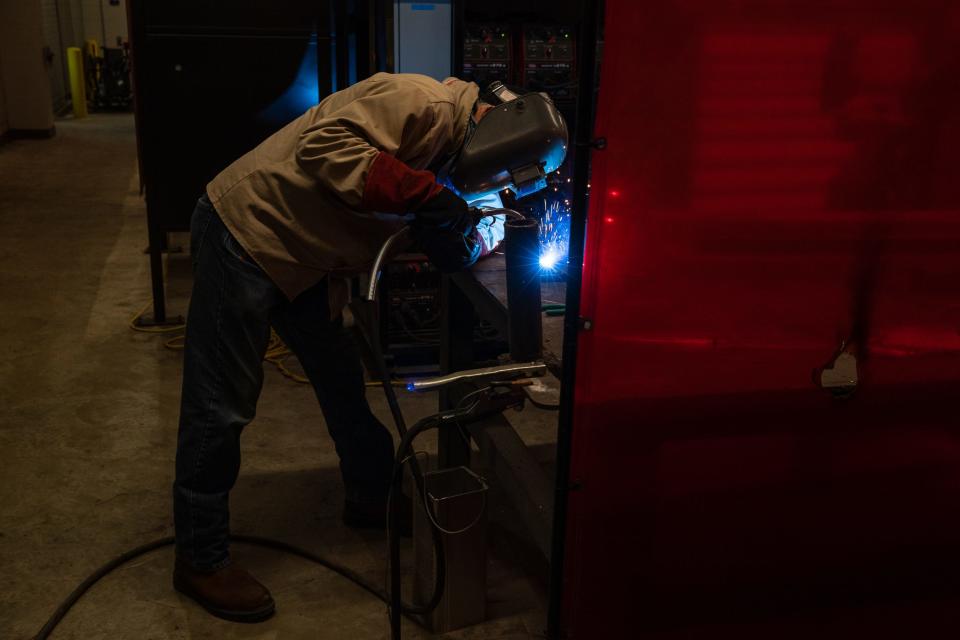Del Mar College sees opportunity in state overhaul of community college funding
Del Mar College is eyeing an influx of new dollars after Texas lawmakers passed an overhaul of the state community college funding system earlier this month.
House Bill 8, signed by Gov. Greg Abbott last week, will provide community colleges across the state with an additional $683 million through a new outcomes-based funding model.
The new legislation is based on the recommendations of the Texas Commission on Community College Finance, which met over the course of a year between November 2021 and 2022. Del Mar College had two representatives on the commission — college President Mark Escamilla and board of regents Chair Carol Scott.
In 2022, state appropriations made up 15.56% of Del Mar College's operating fund revenues, while property taxes made up 54.44% of revenues.
Dollars will be awarded based on performance, including the number of credentials awarded in high-demand occupations, the number of students who earn at least 15 credit hours and transfer to a four-year university and the number of high school students who earn at least 15 credit hours through dual credit programs.
Additionally, the state is increasing funding for Texas Education Opportunity Grants, which serve students enrolled in public community and technical colleges with financial need. Currently, the state only provides funding to cover 28% of students who qualify, but that will increase to 70%.
What will change for Del Mar College?
During 2022-23, Del Mar College awarded about 340 students with TEOG grants. With additional funding, the college estimates it can increase TEOG awards by 100 to 200 students.
For dual credit programs, the state is adding scholarships for students based on free and reduced-price lunch eligibility. This will allow Del Mar College to expand dual credit programs in the region.
“Our students of most need, particularly in the dual credit areas, will be the ones receiving the assistance from the state,” Escamilla said.
Escamilla said that under the new model, dual credit programs are in the best position they’ve ever been in.
"The state’s come a long way in understanding and appreciating its rigor and relevance, and they’re putting money behind it like never before,” Escamilla said.

What's new about the standards for funding?
“Currently, community colleges are funded primarily on what’s called contact hours — seat time in a three-hour course over the course of the semester,” Scott said. “It’s a production-based formula funding and it has been static.”
The new system is based more on program completion and takes into account both credit and non-credit courses.
“What’s exciting about that is it really recognizes the breadth of what community colleges do across the state,” Scott said.

Del Mar College provides dual credit programs for high school students, academic degrees, industry certificates and short-term, stackable workforce programs.
The new law funds colleges based on "credentials of value" awarded, meaning credentials that will benefit local economies by preparing students for high-demand jobs.
The model also includes a base tier of funding for colleges with limited local resources and smaller institutions that experience higher costs, as well as additional funding linked to economically disadvantaged students, students who aren’t college ready and older adults.

The law will go into effect in September. The Texas Higher Education Coordinating Board plans to release emergency rules on how funding will be distributed for fiscal year 2024 by mid-July.
By the end of the year, Del Mar College hopes to have a full understanding of how it will be affected in future years, Scott said.
“We do expect Del Mar College to perform quite well under these new rules,” Scott said, citing the college’s extensive dual credit programs and high number of transfer students who leave Del Mar College to pursue a four-year degree.
Escamilla said that in the eight legislative sessions he has seen as a community college president, he has never seen as significant of an increase in state support.
“It’ll stabilize us like never before,” Escamilla said. “It’s a truly historic piece of legislation.”
'We were the innovator': Here's how Del Mar College is reimagining continuing education
More: Del Mar College is among those asking Texas to change community college funding. Here's why.
Del Mar College celebrates completion of Oso Creek Campus
This article originally appeared on Corpus Christi Caller Times: Del Mar College plans for increased Texas community college funding

